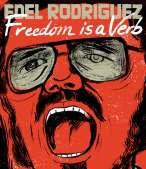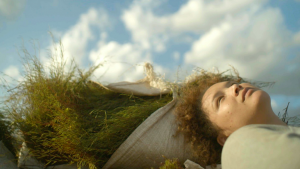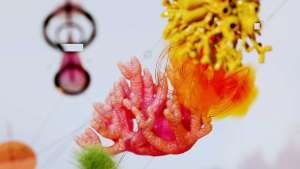Jenna Bass is carving out a new aesthetic and narrative for local films.
Her debut, as the director of Love the One You Love, has been praised for welcoming in a “new wave of South African filmmaking”. Shot using handheld camera and on a micro-budget, Bass’ film tells the story of two people who discover that their romantic relationships may be a part of a conspiracy to keep them in – or out – of love
Love the One You Love defies the aesthetics of local films that South African audiences are so accustomed to seeing on their big screens, and tells a bizarre story. Set in Cape Town, there’s a phone-sex operator, lots of neon lights, and a cameo from a traditional healer.
The film won Best Actress, Best South African Feature Film and Best Direction in a South African Feature Film at the Durban International Film Festival in 2014. In this interview, we take Bass’ temperature and ask her about her debut film and where it fits in South Africa.
"Love the One You Love" is currently being screened at the Labia in Cape Town and at the Bioscope in Johannesburg.
When did you start making films?
The first film I made was a video of my friend's 18th birthday at a club in Long Street using a camera I'd bought after saving up money from doing children's magic shows.
Ironically, 10 years later, Love The One You Love opens in a club on Long Street, so not much has changed, despite the fact that I hardly ever go to clubs on Long Street anymore.
How did the idea for the film strike?
In 2013, I found myself incredibly disillusioned, not only with my career, but also with relationships, and where we were at in South Africa – probably like a lot of people of my generation. I felt that I'd been living in acceptance of so many illusions about the way that the world was supposed to be in terms of love, success, equality, justice and truth, and it seemed these things were all interlinked. It’s often easier to believe what we know can't be true, just because what we sense reality is far messier and more painful.
Despite a lot of lucky breaks and opportunities, I'd been struggling to make my first feature since leaving film school, and I realised that no one was going to believe I could do it until I did it myself. So I threw away a lot of the ideas I had about how films 'should' be made, and started working on a story I could tell with my friends, and the places around me in Cape Town.
What challenges do young people face in the South African filmmaking scene?
I think it's hard to get your first film made anywhere in the world: You have to convince one, or multiple people to take a big risk on you, because films, even low-budget ones, cost a lot of money. However, I think our biggest problem in South African filmmaking is partly creative in that there's frequently a lack of risk-taking, innovation and honesty. There is also what I believe is a distribution crisis.
South African cinemas and often the films themselves are not accessible to the vast majority of our population, people who have every right to not only watch and appreciate the many facets of the movie watching experience, but also to have the opportunity to consider the way in which they could use this art form to communicate their own stories and perspectives.
Unless we address this meaningfully very soon, I fear we'll lose the next generation of filmmakers and film watchers – film will become something their parents did. This is a long conversation, to hopefully be continued elsewhere, but suffice it to say that it's no longer enough to just make films, you have to be involved in this discussion as well as in using your work and other activities to address it.
What is the appeal of this film for audiences?
I think Love the One You Love is a totally different kind of South African film, in the characters it portrays, aesthetically and narratively. I have to believe that South African audiences have been waiting for this – not for my film necessarily – but for a sea-change in cinema to start reflecting some kind of relatable truthfulness, even if it's bizarre and sometimes extreme. I think the characters are very real, and as a result, loveable. They're also very funny. And I think the pain that they're going through in their respective loves is something we all feel and are sometimes ashamed to admit.
Ideally, what would you like audiences to take away from the film?
Of course, the film gives you things to think about, which hopefully anyone who watches it will continue to mull over afterwards. But more than intellectual messages, I'd like to give those who watch it an emotional experience, one that is up and down, nuanced, like life.
Films that sell at the box office in South Africa are often the candid camera sketch types. Do you think the audience is ready for a film like Love the One You Love? Are we ready to redefine our aesthetic?
I hope so! And I have to believe so. Are we ready to redefine our aesthetic? I think we've been ready for a really long time. Not that it will be cohesive or simple, or pretty.
The film is as much about Cape Town as it is about the characters. Tell us about your relationship with the city?
That's very true! I've lived my whole life in Cape Town, but I only started to get to know the city after leaving school. It was a revelation at the time to realise that the city was not what I thought it was; it was multiple worlds, many of which were ignored by the official narrative.
As a kid, I'd been really into fantasy, and now I was realising that I was only scratching the surface of the world I lived in. My experience since then has been learning as much as possible and doing the best I can to re-connect myself with people and places. I wanted Love the One You Love to reflect this. You can never sum it up, or show everything, but the film traverses the city and, I hope, shows it from multiple, interlinking viewpoints.
"Love the One You Love" is available to stream online via Video on Demand.








